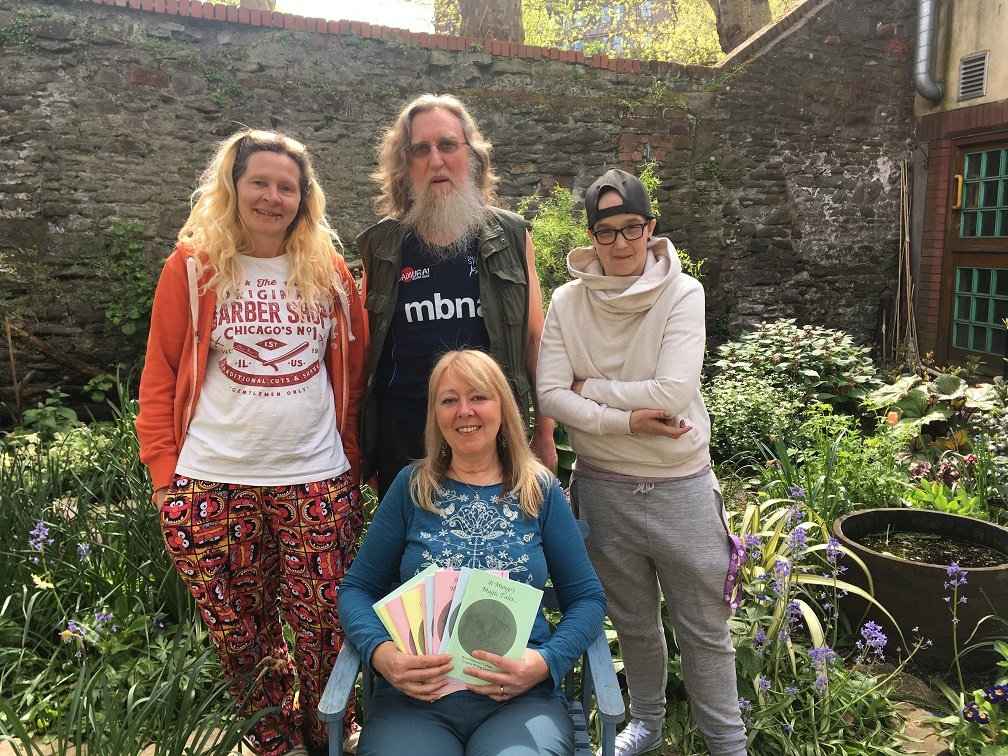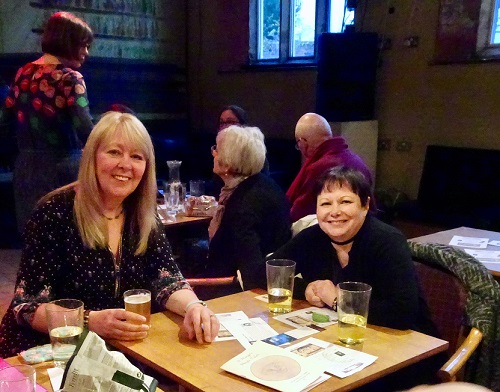 How can creative writing help people to recover from homelessness? Some of the students at our Recovery College in Bristol share their stories
How can creative writing help people to recover from homelessness? Some of the students at our Recovery College in Bristol share their stories
The Recovery College is one of St Mungo’s most innovative projects, based on the principle that learning can be a transformative experience. Courses are designed, delivered and attended by St Mungo’s clients, staff and volunteers, and they are also open to the general public. All courses are free and run by volunteers.
Unlike traditional colleges, the main focus is not on achieving a qualification. Instead, the Recovery College provides a supportive educational environment in which people have the opportunity to sample a wide range of subjects and wellbeing activities alongside a diverse group of peer learners.
Our Recovery College in Bristol runs a range of arts and music classes, offering our clients a safe space to be creative. Among these is the popular creative writing class, led by published novelist Dawn Maria Kelly.
Creative writing is a powerful outlet for self-expression, which can be therapeutic for people who have experienced homelessness or who are in recovery for substance use issues. In addition to improving self-esteem and wellbeing, creative writing can also improve clients’ interpersonal skills and confidence, helping people to find employment or further study opportunities in the future.
The weekly class receives a steady turnout of clients, each with their own stories to tell, in their own unique way. The quality of writing produced in the class has been so high that Dawn and a group of her students made a booklet called St Mungo’s Magic Tales, which they hope to publish soon.
“Making the booklet, something physical that you can see and touch, has made a huge difference to the people who contributed their writing and illustrations to it,” says Dawn. “It’s something they can feel proud of, and show to their friends and family.”
Eddie
“I’ve learnt a lot about myself.”
 “I avoided creative writing in the past because I thought it wasn’t for me. I used to come to the Recovery College just for the music classes. I saw the creative writing class working in the garden one day in summer, and I thought, why not give it a shot? So I joined in, and I’ve been coming ever since.
“I avoided creative writing in the past because I thought it wasn’t for me. I used to come to the Recovery College just for the music classes. I saw the creative writing class working in the garden one day in summer, and I thought, why not give it a shot? So I joined in, and I’ve been coming ever since.
I’m quite an emotional sort of person, and I find writing is good for self-expression. I’ve learnt a lot about myself coming here. A lot about myself, and a lot about other people. Normally it takes a long time to get to know someone. But in the class, people write about themselves, and they write about intimate things. They pour their hearts out sometimes.”
Sara
“Being here has really helped my confidence.”

“I couldn’t read and write a lot before, I’ve taught myself since school really. When I first started the class, I wouldn’t ever talk in the room. I’d just sit there and write for myself. But I share my work more now. Being here has really helped my confidence.
I put my writing and drawings in the booklet which I never thought I’d do, ever! Now I’ve done it, I want to write a book about my life, from my first memory to now. Not for anyone to read, just to challenge myself. I want to become an art therapist in the future. It’s way down the line, but I’ve been volunteering at some of the art classes here for experience. The staff are amazing. You have your bad days, they are here, your good days, they are here. They’ll help you with any kind of problem.”
Tracy
“It’s a way to escape.”
 “I always liked writing when I was a kid, but as an adult I don’t really do anything artistic or creative in my everyday life. So this class is a good creative outlet – it’s my time just for me. It’s a safe space to be a bit vulnerable. I can write something really personal, and no one ever says ‘that’s rubbish!’ Everyone is incredibly supportive.
“I always liked writing when I was a kid, but as an adult I don’t really do anything artistic or creative in my everyday life. So this class is a good creative outlet – it’s my time just for me. It’s a safe space to be a bit vulnerable. I can write something really personal, and no one ever says ‘that’s rubbish!’ Everyone is incredibly supportive.
But the great thing is that you don’t have to talk about yourself if you don’t feel like it. You can experiment, and be completely ridiculous if you want. I’m in recovery for addiction at the moment. It’s going fairly well, but at recovery groups there is obviously a lot of recovery talk… which is important, but sometimes it’s nice to have a break from that. In the class I can write about whatever I want. It’s a way to escape.”
Jayne
I was proud to show it to my children.”
“I started coming to the Recovery College when I was homeless. To start with it was just to get me off the street for a few hours. I’ve been in my own flat for three years now, but I’m still coming to classes. I like the writing class because you can say what’s in your head. Out there, I talk about my children a lot, and some people in my life tell me I talk about them too much. But here I can write about them asmuch as I like. It’s nice to come here and figure out what you like. I love words, and lots of description.
When my work was published in the booklet, I was really chuffed. I was proud to show it to my children. The group worked together to edit it and decide where the stories and pictures would go. It was nice to share and collaborate, and boost each other’s work. I like encouraging people who don’t feel good about their writing. You tell someone how wonderful their piece of work is, and see how happy they are. And you think, I did that, I made someone feel good. Giving out praise is actually nicer than receiving it.”
